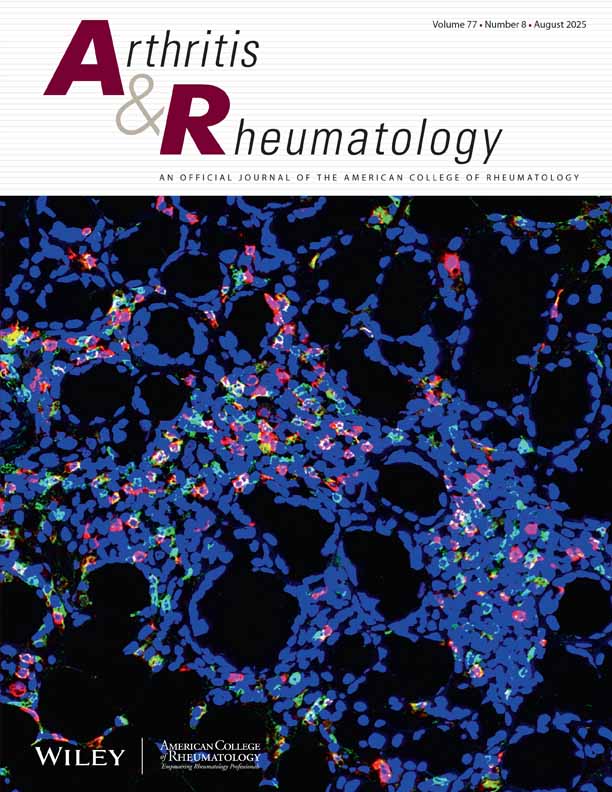Production of endogenous antibiotics in articular cartilage
Abstract
Objective
Defensins are broad-spectrum antimicrobial peptides that are components of innate immunity. To date, only epithelial surfaces and blood cells have been shown to produce these cationic peptides in bactericidal concentrations when challenged with microorganisms or inflammatory cytokines. Infections caused by gram-negative pathogens occur only infrequently in association with joint surgery. The present study was undertaken to investigate whether this may be explained by intraarticular production of gram-negative–specialized antimicrobial peptides.
Methods
Healthy articular cartilage and cultured T/C-28a2 chondrocytes were assessed, by reverse transcriptase–polymerase chain reaction (RT-PCR) and immunohistochemistry, for expression of various antimicrobial peptides. The expression of human β-defensin 2 (HBD-2) was studied in cultured chondrocytes after exposure to bacterial supernatants and proinflammatory cytokines and was assayed by real-time RT-PCR and immunoblot analysis. A septic arthritis mouse model was used to investigate the regulation of the murine homolog of HBD-2 in articular cartilage after bacterial inoculation.
Results
Healthy articular cartilage and T/C-28a2 chondrocytes were able to produce different antimicrobial peptides. After exposure to gram-negative bacteria and proinflammatory cytokines, expression of cartilage-derived HBD-2 strongly increased. Immunoblot analysis revealed up-regulation of the gram-negative–specialized HBD-2 in microbicidal doses. Immunohistochemistry analysis revealed induction of the murine homolog of HBD-2 in vivo after intraarticular injection of bacteria.
Conclusion
This study demonstrated a previously unrecognized function of human chondrocytes. In addition to its biomechanical properties, articular cartilage has the ability to produce antimicrobial substances when challenged with microorganisms. The expression of HBD-2 in microbicidal doses suggests that antimicrobial peptides may contribute to host defense mechanisms in articular joints.




